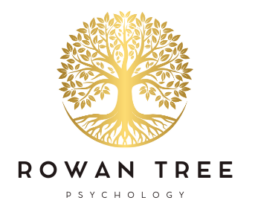"EMDR is a quantum leap in the human ability to heal trauma and maladaptive beliefs."
Laurel Parnell
EMDR: What to expect
We will meet either face to face in a lovely clinic in South Northumberland, or online, on a secure video call. Initially, EMDR will feel like any other talking therapy - we will undertake an assessment and create a treatment plan. After this, we will undertake some resourcing, where we complete exercises to ensure you have the internal resources to cope during and in between sessions. I will then ask you to bring up the distressing memory, or the triggers, and ask you to follow a dot on the screen, or tap either side of your chest with your hands. This is what is known as bilateral stimulation. If we work together online, you don't need to download any programmes; I will show you the moving dot by way of a screen share, and we can adjust the speed and size to suit your needs.
Sessions are generally 50 minutes long, but sometimes longer sessions are required, which we will agree together. During these longer sessions, you may need comfort breaks, as EMDR can be an emotional process. I will carefully monitor you during the process to make sure you are OK, and that you are reprocessing in the most helpful way. You don't need to do anything between sessions, except look after yourself and make note of any new memories or material that may come up.
It is hard to say how many sessions you will need. Most people have between 10 and 25, but this will depend on how much material you bring, or how much new material arises during the sessions. Single incident traumas, for example, a road traffic accident, tend to clear more quickly than multiple, more complex traumas, such as an abusive relationship or childhood bullying. But this isn't always the case.

How does EMDR work?
EMDR is an evidence-based therapy that supports your brain's natural information processing system to move towards healing.
When we experience something stressful or traumatic, our brains can feel overwhelmed and unable to fully process what is happening. This can lead to the memory become 'stuck' and experienced in the present as extremely distressing. We may remember it vividly, including sights, smells, sounds and physical sensations, or we may experience nightmares or flashbacks. Or it may be that these difficult memories are influencing the present unconsciously, resulting in mental health problems like depression, low self-esteem, anxiety or attachment difficulties.
EMDR helps to 'unstick' the difficult memories, so they don't impact on the present in a negative way. The bilateral stimulation, which can involve side to side eye movements, or tapping on either side of your body, helps to reduce the intensity of the memories, so they are processed more like a normal memory.
We're not entirely sure how EMDR works, but one of the main theories is that it mimics REM sleep, allowing distressing memories to be healthily integrated into the brain. It may also mimic the visual tracking that we naturally do when walking. Regardless of theory, the evidence base for EMDR is impressive and continues to grow.

Who does EMDR help?
EMDR is a treatment of choice for treating trauma, which can refer to major traumatic events, such a road traffic accident or a birth trauma, or those everyday, disturbing events that happen over a prolonged period - sometimes referred to as death by a thousand paper cuts. This could be bullying at work or growing up with emotionally immature parents. This means that EMDR doesn't just help people with PTSD or complex PTSD, it also helps people with low self-esteem, depression, anxiety (including phobias, social anxiety and panic) and many other difficulties. It may be that you have a sense of being 'stuck' due to things that have happened in your past, perhaps bullying at school or living with an abusive partner. EMDR is well placed to help you reprocess these difficult memories and break free from your past.
EMDR is also helpful if you don't want to go over difficult events again and again, which in itself can be retraumatizing, or if you struggle to complete homework in between sessions.

